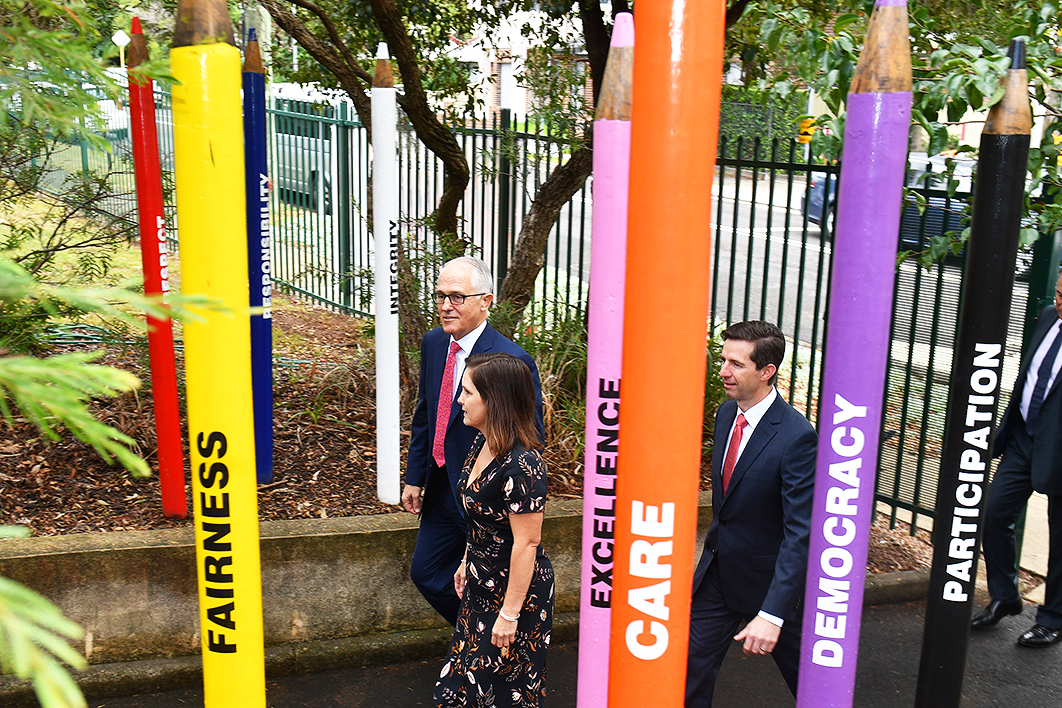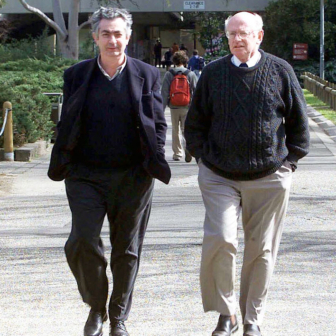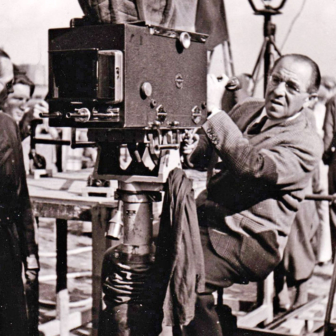Teacher: One Woman’s Struggle to Keep the Heart in Teaching
By Gabbie Stroud | Allen & Unwin | $29.99 | 352 pages
School education is both blessed and cursed by an abundance of experts. The commentariat is never short of an opinion, and an industry has built up around school reform, generating or recycling the latest sure thing to lift school results and beat Shanghai — or whatever else might be the latest priority.
What the experts have in common is considerable distance from schools. Far too many have a blinkered view of what kids are and what schools could be. They rarely have the inside view that teachers have. But teaching is an all-consuming profession: good teachers are immersed in where they are and what they are doing, and rarely get the chance (or make the time) to step back to see the bigger picture. At the end of the school day you don’t reflect, you recover.
This makes commentary about schools from insiders, or from those close by, all the more valuable. Lucy Clark’s Beautiful Failures is an evidence-backed parent’s critique of a school machine that leaves so many behind. Drama teacher Ned Manning’s Playground Duty captures the thoughts of teachers who dare. While others gather the evidence about schools, people like this describe them more effectively with stories. And now here is Gabbie Stroud’s Teacher, telling of her journey through schools right the way from childhood through to teaching in a system that had lost its way.
Teacher is about an educator and a system under siege. The elements of the crisis are displayed from the start. By page fourteen, Stroud is a first responder, nurse, counsellor, traffic cop and psychologist. She deals with the needs of kids, parents, the law, administrators… and the system. Against the odds, she radiates professionalism, compassion and cheer, but lurking in the background are the pressures that, in the end, wore her down.
Her narrative of her life as a student and teacher not only makes a good story but each experience makes its own contribution to the teacher she became — and eventually to her decision to leave. It adds up to a telling critique of what has happened to school education in this country.
Her own school life and tertiary education were about encouragement, creativity and achievement, including in writing. Like so many, she developed a passion to be one of the teachers she admired. But when she became such a teacher, it was in what she describes as a very different era for schools. One of the themes in her book is this dichotomy between her early experience and the constrained and over-directed world that schools became during her career.
To some extent this contrast between schools then and now is overstated. Many would challenge the notion that schools years ago were places where a thousand flowers were allowed to bloom. We all remember the teachers who inspired us. But many of the inspiring teachers were mavericks, just as they often are today. Progress through school was even more lock-step; textbooks and the three Rs ruled. As for achievement, if retention rates are any guide, then half the flowers wilted. Schools largely sidelined the strugglers until they fell away into jobs that no longer exist.
But there certainly have been changes for the worse. Stroud’s book complements the growing chorus of criticism of the takeover of school education by the market, and especially the belief that quality grows out of competition between schools. Today’s instruments include the My School website and the hijacking of NAPLAN to fuel competition. Most schools play the game, most students endure the system, but if the criteria of its success are high levels of student commitment and achievement it is an abject failure. Stroud is just one of a generation of teachers who have lived through this failure.
Her introduction to teaching was actually in London, where she threw herself into the job. Like most beginning teachers, she found that teaching took a lot out of her: it was “a part of me given away, day after day.” That could be endured; it was the other things that got in the way.
It was in London that she was introduced to the joys of standardised assessment tests and league tables. “I bet it’s not like this in Straylia,” one student quipped. It might not have been like that when she returned to Australia, but it soon would be. The challenges in her remote NSW school were already considerable. Her initiation into the complexity and dysfunction in the lives of her students and their families was tough by any standards. She set aside her meticulously prepared teaching programs, along with assumptions about what works and what doesn’t.
From there she taught in a Catholic school, then in Canada and later back to a regional school in New South Wales. The names and stories of her students weave in and out of a narrative that would resonate with anyone familiar with schools. Teachers often tell these stories; it’s about coping. She survived and thrived with the help of the informal support and mentoring from colleagues. In many schools, teachers hang together in this way — or hang separately.
Like many, Stroud became somewhat cynical, but it was a healthy cynicism among teachers who must periodically ride out the pendulum of school change. She especially struggled with A to E student assessment and reporting. “Something inside me wanted to rage against this imposition,” she writes. “I wondered what the letter E would mean for all the Warrens and Ryans of the world. I thought of a younger me flipping herself inside out to achieve an A and hating myself when I didn’t get it.” While it is a decade too late, the recent Gonski recommendations might still come to the rescue of the Warrens and Ryans — and the Gabbie Strouds.
As a teacher, Stroud combined her passion and professionalism with a measured degree of resistance. While it is never easy, smart school principals and bureaucrats need to value good teachers who do this. Amid the inevitable, ephemeral and often questionable changes we impose on schools, teachers like these keep the whole enterprise grounded and authentic.
For Stroud it probably became too much when My School and NAPLAN entered the scene. After her London experience she knew the game and what it would do to schools and students. She could see that schools would be unfairly compared and that some kids would become sought-after social capital.
It was beginning to beat her. “Everything I was doing seemed to be driven by something beyond me…” she writes. “I had lost all sense of autonomy and had learned to stop asking ‘why.’” And she recognised the same symptoms in colleagues who also resented having to put meaningful things aside to prepare for tests. She recounts her daughter, playing at being a teacher with her classroom of dolls, telling one of her charges, “We don’t have any time for that.”
Then came the national curriculum, “rolled out like a steamroller flattening us into conformity.” Then the Australian Professional Standards for Teachers loomed, “like the bogeyman in my childhood hallway.” As she explained to a colleague, “It’s a deficit model. Our system examines what’s lacking rather than valuing what’s achieved.”
She only managed a couple more years after that: depression, burn-out… we call it different things. She became part of the statistics that measure the scores of teachers we drive away, the ones we can least afford to lose. “I miss the classroom,” she writes. “I miss the kids. I miss the feeling that I was making a difference. But I don’t believe that I left teaching. Teaching left me.”
This book is essential reading for anyone in, or anywhere near, a school. Many will reject aspects of her critique, but we can’t afford to ignore its overall message. The good news is that her concerns are also being recognised, through the second Gonski review, in a way that might see sustainable solutions. In our efforts to create something better, Teacher is a timely warning that we ignore the teaching profession at our peril. If we don’t take them with us, we’ll go nowhere.
It is also a plea to politicians, pundits and principals to follow three steps to make a difference for teachers and kids: give them support, give them trust — and then get out of the way. ●




